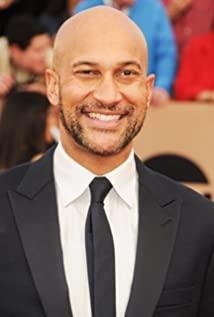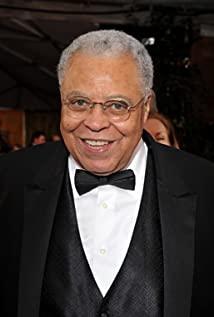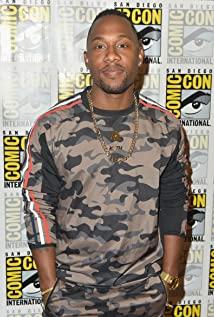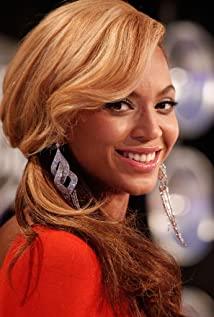I will try to explain from the perspective of "biopolitics" the unpleasantness caused by the "Real Lion" version of "The Lion King" to the audience, as well as the audience's criticism of its "facial paralysis" and the call for "expressions".
The story of "The Lion King" is a myth of "biopolitics". "Biopolitics" was the main area of concern for Fuke in his later period. From social medical activities he found "biopower" parallel to "disciplinary power" - "disciplinary power" aimed at creating a useful individual body, while "biopower" concerned with "the overall Governance of Population", "It is concerned with reproduction, birth and death rates, health and longevity changes." On the other hand, "biopower" is different from "monarchical power", which is at its core "to let people die." ", it has unlimited lethal power; and the core of "life power" is "to make people live", and the core purpose of society since the mid-18th century is the security of the population. This can be seen in the battle between Simba (and Mufasa) and Scar, this story is a struggle for governance between "making people die and making people alive", whether the audience is a citizen of modern society, Or Disney, as an echo/producer of universal values, should agree with the governance technique of "biopolitics" represented by Simba, and as a symptom of "homo sacer" in "biopolitics" Existence, "real animals" have also become the breaking point of the whole myth.
The "sacrificial man" is a symptom of "biopolitics," the point of exception that negates universality from within. The fundamental purpose of "life power" is to "make people alive", but it ultimately leads to "death power", such as the existence of the death penalty. The death penalty is not for revenge for their crimes, but to protect the security of society; the purpose of war is not to kill others , but to defend itself. The ultimate example of this "death power" is the Nazi massacre of the Jews. Agamben describes the birth of the concentration camps: Jews needed to be slaughtered in order to preserve the purity of Aryan blood. Jews were born with the rights of German citizens, and then Hitler reduced them to second-class citizens through the ban; the Nuremberg Act reduced them to residents; until after the crystal night, even after the deprivation of human rights, Jews became "naked lives" and became "Sacrifice". The "sacrificial man" comes from the ancient Roman period. This is a person who has been deprived of all political life and is not even allowed to sacrifice. Agamben believes that human beings have two lives, "bare life" and "bare life". Meaning life" (zoē), "sacrificial man" is the animal stripped of "meaning life", and it is the supreme exception of the whole "biopolitics". In "The Lion King", the audience can recognize the existence of "sacrificial people", Simba is taken to the forest by Pongpong and Timon, and the meat eaters abide by the "biopolitics" style agreement, and for the continuation of life, it is always necessary to There are creatures that are eaten - that's bugs. Insects are the "sacrificial people" of "The Lion King". They are indescribable, not "animals", deprived of "meaning life" and can be slaughtered at will. The problem is that the experience of the audience from the diachronic symbol system shows that "bugs are animals", but it is excluded by "supreme decision", and this moment is captured by the audience through the difference between the two symbol systems, which becomes the opposite of " A model of real" restlessness.
What we still need to explain, then, is the audience's dissatisfaction with "real animals". The animated version of "The Lion King" is almost identical to the "Real Lion" story, the difference is almost entirely in the words - due to the focus and for the convenience of discussion, I focus more on its "real animal" signifier. From the signifier of "real animal", we can connect at least three text systems: real animal: animal, animated version of animal: animoyen (animal + citoyen) "real lion version" of animal: anim. No matter which version of "The Lion King" the animals are based on the coexistence of "naked life" and "meaning life", the difference is only the level of signifier. The animated version of the animal can refer to what I call animoyen, "both animal and citizen", a state of non-separation co-existence. The "real lion version" is called anim for the time being, and it is connected to the animal by its signifier similarity. Taking Pumba as an example, the pompon of anim is a happy wild boar that can "Hakulamatata" with Simba, The animal's pompon is an animal that must be preyed by Simba. Pompon's inability to be preyed on is due to the presence of "meaning life", and the paradox is that anim, as the signifier covered by the original animoyen, constantly metaphors animal. Animal is an animal, a "naked life". It reminds the absence of "meaning life", and makes "meaning life" unable to be represented by anim. This is the real source of unhappiness—the unrepresentation of "meaning life" and the ever-present presence of "naked life", which constantly reminds the audience that we must face "biopolitics" built on "naked life", And "meaning life" faces a situation of being stripped.
In the end, the audience named the dissatisfaction "Facial Paralysis" and called for the return of the expression. I was also finally able to go back to familiar territory to explain it all, a psychoanalytic drama that has been going on for thousands of years, a re-enactment of castration. The young boy mistook penis for the signifier of philus, and upon witnessing the absence of penis in his mother, retroactively named the event castration in connection with the lack of his mother's philus, fearing that it would happen to him. To deal with castration anxiety, he needs to find a symbol to deny castration, which is the structure of fetishism. The audience's call to expression enjoys a fetish structure. The absence of "meaning life" suggested by anim caused the audience's anxiety about the castration of "meaning life". They retrospectively believed that the reason was the absence of anim's oyen, but in fact this was just an extensional signification caused by the replacement of the signifier. In order to deny this incident, the audience finally met oyen as "human expression" through correlation, and we all know that animoyen is a signifier of "both being and being", and there is also a complete "meaning life" under anim, The expression is just an illusion denying this retrospective event.
References:
[1] Wang Min'an. From national rationality to biopolitics: Fu Ke's theory of governance [J]. Cultural Studies, 2014(1): 100-118.
[2] Wu Guanjun. Biopolitics: Between Fuke and Agamben [J]. Marxism and Reality, 2015(1):93-99.
View more about The Lion King reviews











